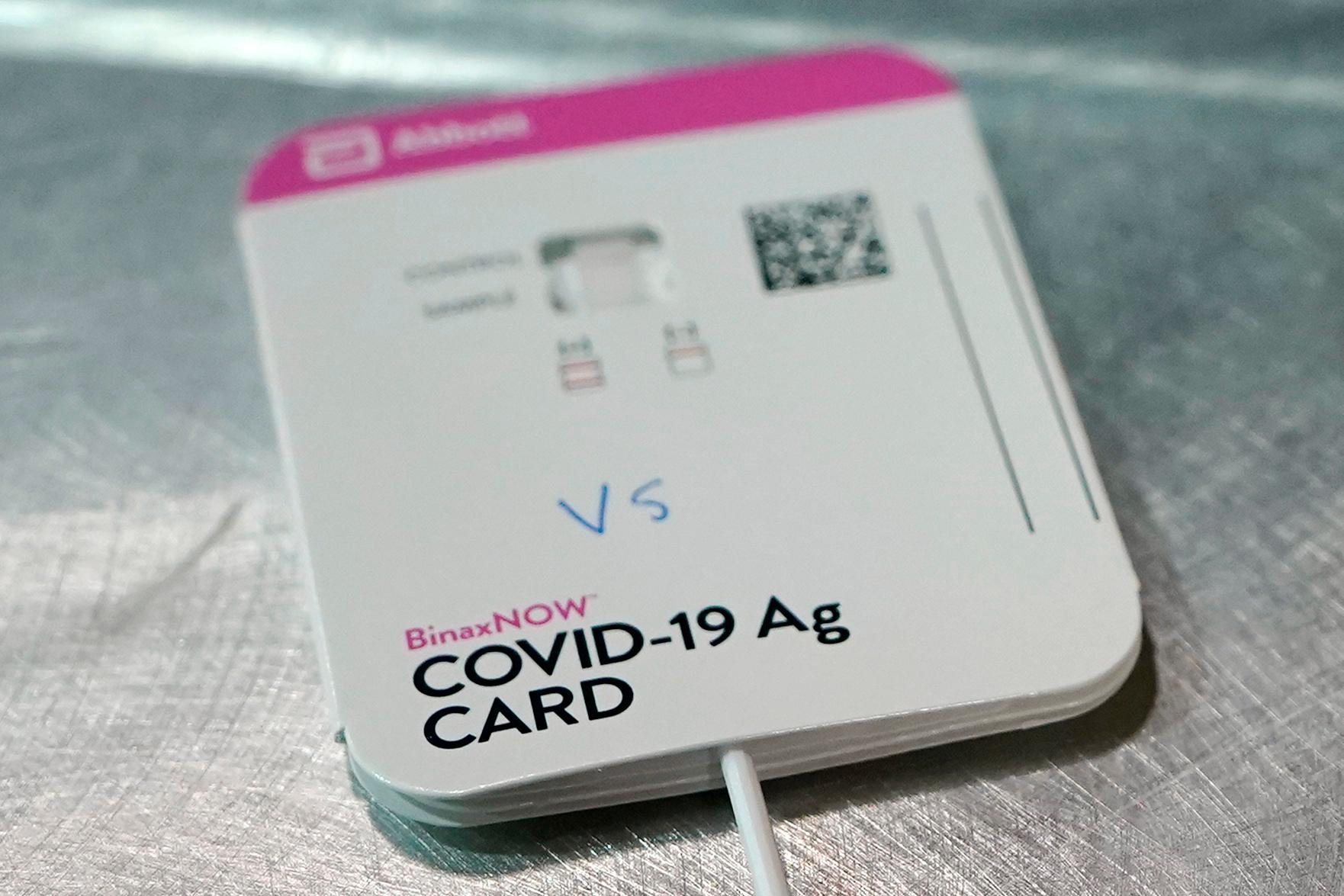
Colorado is renewing a push to get free, rapid, at-home tests to residents.
Gov. Jared Polis said Tuesday at a press conference that with the revamp of the state’s COVID-19 testing program, Coloradans can now get the tests sent directly to their homes.
“I know that if these tests are in the field, being used, people are getting results back, isolating earlier, spreading the virus less, it will save lives and help end the pandemic in Colorado,” Polis said.
Rapid coronavirus tests have been plentiful in other countries, but to date bureaucratic hurdles have stymied US efforts.
The state purchased two million Abbott BinaxNOW rapid tests. The governor didn’t specify the amount of money or source for the funds to buy the tests.
“We want to get the tests out. If we go through these tests in three, four or five weeks, we will absolutely look into seeing how we might be able to continue the Binax at home program,” the governor said.
How the at-home antigen tests work, and how you can order them
The rapid antigen tests show results within 15 minutes. The program aims to give parents, guardians and caregivers an easy test for children, to help keep them safe and keep schools open.
Antigen tests commonly use a nasal swab in the diagnosis of respiratory pathogens, including influenza. The U.S. Food and Drug Administration has granted emergency use authorization for antigen tests that can identify SARS-CoV-2.
The tests detect specific proteins from the virus and can identify people who are at the peak of infection, when viral levels are likely to be high.
The tests are relatively inexpensive, and most can be used at the point of care.
All Coloradans can sign up for the tests. Once the test results come in, residents are given instructions on how to interpret and report them.
Each order includes eight tests, which recipients can use to test themselves or their kids twice a week for four weeks. Tests don’t automatically ship on a monthly basis. People can sign up to get the tests at the state's COVID-19 testing website.
Polis acknowledged the state wants more people taking the tests.
“In the schools, we have more supply than demand. We want more kids to sign up for weekly testing,” Polis said. “We want more schools in school districts to get implemented, weekly testing. We're going to be paying kids $10 a week to be part of the weekly testing program. So we have far more testing capacity than demand in the schools.”
The latest on hospital ICU capacity
At Tuesday’s update, state epidemiologist Dr. Rachel Herlihy described hospital intensive care capacity, which has been a concern, as moderating but still a mixed bag.
“There is some variability in what we are seeing in ICU capacity across the state. While Colorado’s COVID-19 rates have started to go down, we are still seeing some higher rates in northern parts of the state,” she said.
Counties with the highest hospitalization rates tend to be the counties with the lowest vaccination rates and vice versa.
“So the overall message is that at the individual level the vaccine will prevent you from being hospitalized and at the county and state level, vaccinations help keep ICU capacity in check,” Herlihy said.
About 80 percent of state employees are vaccinated
Polis also addressed a mandate for vaccination or regular testing for state employees, who faced a Sept. 20 deadline to get their shots or get tested regularly.
Polis said of nearly 26,000 state employees, more than 20,000 or, “just about 80 percent have demonstrated that they are vaccinated.” He noted that the figure is higher than the state’s current vaccination rate.
He cautioned that those numbers are preliminary and he didn’t specify what happens for employees who refuse to get their shots or comply with the testing mandate.
“If they don't want to be tested, they would need to be vaccinated within the next week or so. So some are planning to get vaccinated or were vaccinated yesterday, today,” Polis said.
In July, the state of Colorado joined other governments and businesses in turning up the pressure on unvaccinated workers, announcing that those who choose not to get protected from COVID-19 would face routine testing for the virus and must continue to wear face coverings when inside buildings.
Polis said state employees without proof of COVID-19 vaccination would need to be tested twice weekly, with results submitted to human resources, and once they proved they are fully vaccinated, they could stop being tested.








